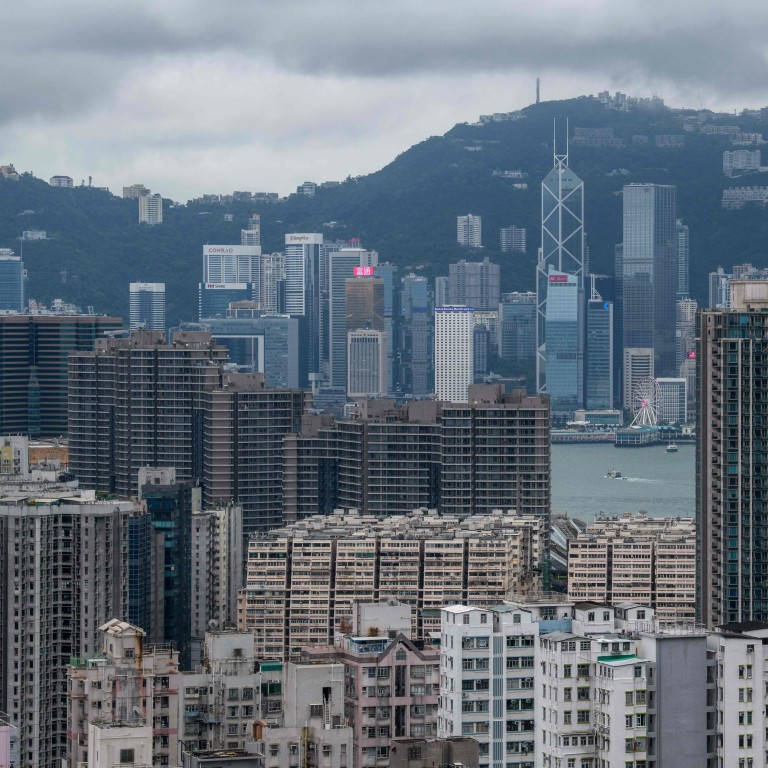
Hong Kong commercial property deals fall by a third as worsening political crisis saps appetite, says Real Capital Analytics
- Transactions in the sector came to US$2.7 billion in the third quarter, according to RCA, down 32 per cent from the same period a year ago
- Hong Kong fell from second to fifth place in RCA’s global ranking of commercial real estate transactions, just ahead of Singapore
Commercial property deals in Hong Kong fell by a third in the period from July to September, dragging the city down to fifth place from second in a global league table compiled by Real Capital Analytics.
Hong Kong’s plunge in the rankings reflects how investors’ appetite for assets in the world’s most expensive property market has dried up as the city grapples with the worst political crisis in its history.
Transactions in the commercial property sector came to US$2.7 billion in the third quarter, according to RCA, down by 32 per cent from the same period a year ago. Particularly hard hit were deals worth above US$100 million, said RCA, which tracks property deals worth at least US$10 million.
Hong Kong will stay in recession next year, say the city’s accountants
It was the fifth straight quarter in which activity has contracted on an annual basis. Australia topped RCA’s rankings with US$6 billion of deals, ahead of China in second place on US$5.7 billion and Japan on US$5.3 billion.
Hong Kong found itself a whisker ahead of Singapore, widely considered its main rival in attracting cross-border investment, which saw a 62 per cent surge in deal value to US$2.6 billion in the third quarter.
In the first nine months of the year, the Lion City’s commercial property transactions rose 69 per cent to US$7.5 billion, while Hong Kong’s tanked by 41 per cent from a year earlier to US$13.9 billion.
“Hong Kong transaction volumes dwindled significantly during the third quarter, largely due to reduced activity by domestic investors after the political protests erupted in June,” said David Green-Morgan, RCA’s managing director for Asia-Pacific.
“Real estate typically reacts slower to economic and political situations and we may not see the full effect in Hong Kong until the fourth quarter of this year and going into 2020.”
The lower volumes in the commercial segment show how investors have turned cautious about the prospects of the city’s economy and its property market, once deemed the hottest in the world. Many potential buyers have been totally put off by the seemingly unending social unrest that has beset the city since June.
As an example of how investors view the prospects of Hong Kong’s property market, the Kimberley Hotel in Tsim Sha Tsui was sold for HK$4.3 billion (US$548 million) in October, about 28 per cent less than the owner’s original asking price of HK$6 billion.
Hong Kong home purchases jump 16 per cent in October
The lower price fetched by the hotel indicates “how the coming months will be a stern test of the financial muscle and patience of real estate owners, particularly in Hong Kong Central,” said RCA.
Some property agents in Hong Kong believe the prospects for the commercial sector will remain gloomy because the social unrest rocking the city is unlikely to be resolved any time soon.
“The investment appetite of buyers of local commercial property looks downcast since many of them are looking to get a discount of over 20 per cent in prices, and owners are certainly not willing to do that,” said Daniel Wong, executive director of Midland IC&I, which handles commercial property transactions.
Not everyone believes it’s all doom and gloom for the commercial segment. The current environment may allow end users and investors to find good office space in 2020.
“We think Hong Kong’s office rents in general will drop by about 8 per cent. I believe the market next year will favour investors or end-users who are searching for office space or buildings to buy,” said Antonio Wu, Colliers International’s deputy managing director, capital markets, Hong Kong.

